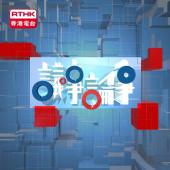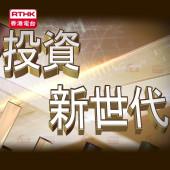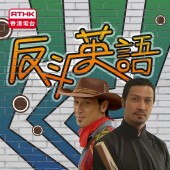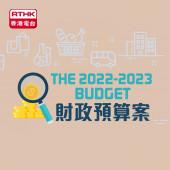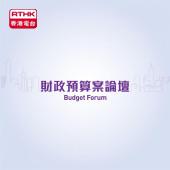 Loading ...
Loading ...Professor Ho Lok Sang
2020-07-26
返回
Professor Ho Lok Sang
2020-07-26
2020 has been an eventful year, and many people in the city have been embroiled in anxiety. Too many things have happened, and our society is not quite the same.
The one thing that troubled me the most is the propensity of people to fight one another. This is not the Hong Kong I knew. Yet everyone involved in the dogfight wants a better Hong Kong. In this sense we all share the same dream: a just society in which people live in harmony and thrive, where people can go after their pursuit freely, free from fear and worries.
The absurd thing is that while people share the same love for this city they fight among themselves fiercely. It is apparent to me that while they share the same love for Hong Kong, they believe in different solutions. They fight one another to defend their beliefs.
This is most unfortunate. We all want the solution that works. Why can’t we work together to find out which solution works best?
What is most frustrating is that some people are prepared to fight to get their way with any means. Including illegal, violent, or deceitful ways. They have tremendous faith in their beliefs, and they are convinced that the status quo must be overturned. They call for a revolution.
The other camp, which shares the same love for their city, prefer incremental changes instead of a revolution. They also are wary of the violence and the disruption to economic and social life that have been engendered.
Our police force is caught in the crossfire. Naturally it took much blame.
The revolutionary camp has now a strategy. It was proposed by Professor Benny Tai, who has a plan to force the revolution upon Beijing.
According to his calculation, the “pan-democrats” will get more than half of the seats in the coming Legislative Council elections. They will vote against the Budget and block any funding requested by the government, forcing the government to shut down. The government will be expected to dismiss the Legco and call another election. The revolutionary camp will again win more than half of the Legco seats, forcing the Chief Executive to resign.
According to Prof. Tai’s calculation, Beijing will establish a provisional Legco, appoint a new Chief Executive, and arrest political leaders in the pan-democrat camp. This will then provoke major social unrest and strikes, paralyzing the economy. That will force a “bloody crackdown” which will in turn lead to extreme sanctions on the Chinese Communist Party from various nations. Prof. Tai looks forward to this scenario.
He likened this scenario as “Hong Kong people holding on to the Chinese Communist Party to jump off the cliff.” He wrote he could not imagine what would happen thereafter.
I find Prof. Tai’s strategy most disturbing. If he has a strategy that will bring about a better Hong Kong, everyone should welcome it. But his strategy is pointing to bloodshed and “jumping down the cliff.” Why would this be desirable? Instead of explaining how a better Hong Kong will come about, he wrote he could not imagine what would come next.
This is the same Benny Tai who preached love and peace when he promoted his “Occupy Central Strategy.” I could not believe it when I read commentaries that related his strategy. But I can now confirm that this is exactly the strategy he described in an article he wrote in Apple Daily.
I can accept people holding on to their beliefs for whatever reason. This is their prerogative. But I cannot accept people proposing and promoting a strategy that points to social unrest and bloodshed and not offering a vision of how Hong Kong will fare better than today. I am dismayed that many Hong Kongers subscribe to this strategy, as suggested by the enthusiastic participation in the pan-democrat “primaries” election.
Someone with the stature of Prof. Tai certainly needs to have a sense of social responsibility. He may disapprove of the one-party system on the mainland, but he cannot ignore the fact that people on the mainland are happy with the government.
A survey team from the Ash Center for Governance and Innovation of Harvard University found that ‘compared to public opinion patterns in the U.S., in China there was very high satisfaction with the central government. In 2016, the last year the survey was conducted, 95.5 percent of respondents were either “relatively satisfied” or “highly satisfied” with Beijing. In contrast to these findings, Gallup reported in January of this year that their latest polling on U.S. citizen satisfaction with the American federal government revealed only 38 percent of respondents were satisfied with the federal government.‘
Similarly, another study from Dalia Research in Germany found that 73% of the Chinese consider China to be democratic, whereas only 49% of Americans believe the same about the US. Dalia Research called the difference between how important people think democracy is and how democratic they think their country is the “Perceived Democratic Deficit.” America’s perceived democratic deficit is 24%. That of China is 11%. The survey covered 124,000 people across 53 countries.
Many people critical of the Chinese Communist Party pointed to some blunders in the past, including in particular the Great Leap Forward and the Cultural Revolution. But China today is not the China before 1979. Since 1979, there has been hardly any political campaigns launched by the CCP. Focus has been on poverty alleviation and economic development.
I know many people are wary about the National Security Law. I would urge that we had better wait and see how it plays out. Agitating over it will not help. We had gone through Occupy; we had gone through the Fugitive Law Amendment Bill. The NSL is a result of that agitation. My reading is that as long as we stick to the Basic Law, Hong Kong will be fine. After all, China gains nothing if Hong Kong doesn’t thrive.
The one thing that troubled me the most is the propensity of people to fight one another. This is not the Hong Kong I knew. Yet everyone involved in the dogfight wants a better Hong Kong. In this sense we all share the same dream: a just society in which people live in harmony and thrive, where people can go after their pursuit freely, free from fear and worries.
The absurd thing is that while people share the same love for this city they fight among themselves fiercely. It is apparent to me that while they share the same love for Hong Kong, they believe in different solutions. They fight one another to defend their beliefs.
This is most unfortunate. We all want the solution that works. Why can’t we work together to find out which solution works best?
What is most frustrating is that some people are prepared to fight to get their way with any means. Including illegal, violent, or deceitful ways. They have tremendous faith in their beliefs, and they are convinced that the status quo must be overturned. They call for a revolution.
The other camp, which shares the same love for their city, prefer incremental changes instead of a revolution. They also are wary of the violence and the disruption to economic and social life that have been engendered.
Our police force is caught in the crossfire. Naturally it took much blame.
The revolutionary camp has now a strategy. It was proposed by Professor Benny Tai, who has a plan to force the revolution upon Beijing.
According to his calculation, the “pan-democrats” will get more than half of the seats in the coming Legislative Council elections. They will vote against the Budget and block any funding requested by the government, forcing the government to shut down. The government will be expected to dismiss the Legco and call another election. The revolutionary camp will again win more than half of the Legco seats, forcing the Chief Executive to resign.
According to Prof. Tai’s calculation, Beijing will establish a provisional Legco, appoint a new Chief Executive, and arrest political leaders in the pan-democrat camp. This will then provoke major social unrest and strikes, paralyzing the economy. That will force a “bloody crackdown” which will in turn lead to extreme sanctions on the Chinese Communist Party from various nations. Prof. Tai looks forward to this scenario.
He likened this scenario as “Hong Kong people holding on to the Chinese Communist Party to jump off the cliff.” He wrote he could not imagine what would happen thereafter.
I find Prof. Tai’s strategy most disturbing. If he has a strategy that will bring about a better Hong Kong, everyone should welcome it. But his strategy is pointing to bloodshed and “jumping down the cliff.” Why would this be desirable? Instead of explaining how a better Hong Kong will come about, he wrote he could not imagine what would come next.
This is the same Benny Tai who preached love and peace when he promoted his “Occupy Central Strategy.” I could not believe it when I read commentaries that related his strategy. But I can now confirm that this is exactly the strategy he described in an article he wrote in Apple Daily.
I can accept people holding on to their beliefs for whatever reason. This is their prerogative. But I cannot accept people proposing and promoting a strategy that points to social unrest and bloodshed and not offering a vision of how Hong Kong will fare better than today. I am dismayed that many Hong Kongers subscribe to this strategy, as suggested by the enthusiastic participation in the pan-democrat “primaries” election.
Someone with the stature of Prof. Tai certainly needs to have a sense of social responsibility. He may disapprove of the one-party system on the mainland, but he cannot ignore the fact that people on the mainland are happy with the government.
A survey team from the Ash Center for Governance and Innovation of Harvard University found that ‘compared to public opinion patterns in the U.S., in China there was very high satisfaction with the central government. In 2016, the last year the survey was conducted, 95.5 percent of respondents were either “relatively satisfied” or “highly satisfied” with Beijing. In contrast to these findings, Gallup reported in January of this year that their latest polling on U.S. citizen satisfaction with the American federal government revealed only 38 percent of respondents were satisfied with the federal government.‘
Similarly, another study from Dalia Research in Germany found that 73% of the Chinese consider China to be democratic, whereas only 49% of Americans believe the same about the US. Dalia Research called the difference between how important people think democracy is and how democratic they think their country is the “Perceived Democratic Deficit.” America’s perceived democratic deficit is 24%. That of China is 11%. The survey covered 124,000 people across 53 countries.
Many people critical of the Chinese Communist Party pointed to some blunders in the past, including in particular the Great Leap Forward and the Cultural Revolution. But China today is not the China before 1979. Since 1979, there has been hardly any political campaigns launched by the CCP. Focus has been on poverty alleviation and economic development.
I know many people are wary about the National Security Law. I would urge that we had better wait and see how it plays out. Agitating over it will not help. We had gone through Occupy; we had gone through the Fugitive Law Amendment Bill. The NSL is a result of that agitation. My reading is that as long as we stick to the Basic Law, Hong Kong will be fine. After all, China gains nothing if Hong Kong doesn’t thrive.
Politicians and public figures from a range of backgrounds take turns to have their say on important matters of the day in this personal view programme.
Catch it live: Sunday 8:15am - 8:25am
Podcast: Updated weekly and available after broadcast.

